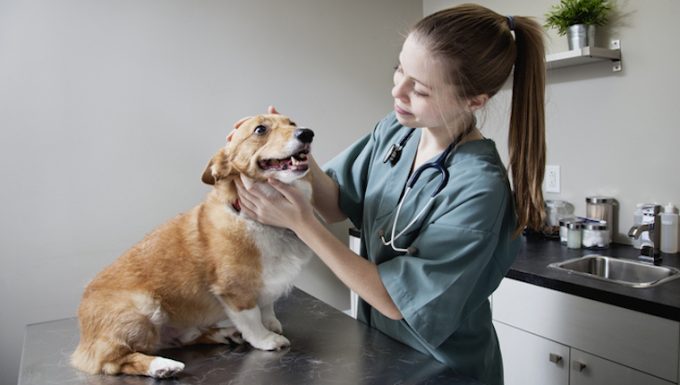Hypercalcemic agent poisoning in dogs happens when there is too much calcium in a dog’s blood. The condition is brought on by ingesting too much vitamin D3.
Specifically, dogs can ingest vitamin D3 from rat poison. Additionally, some home products contain vitamin D3. The medical name for vitamin D3 is cholecalciferol.
Generally, the condition affects the kidneys and nervous system.
If you see the signs of hypercalcemic agent poisoning in your dog, then get to a veterinarian for a proper diagnosis and treatment.
Here’s what you should know about the symptoms, causes, and treatments for the condition.
Symptoms of Hypercalcemic Agent Poisoning in Dogs
The condition produces a wide range of symptoms. However, sometimes the symptoms will not show for a day or so.
Generally, some of the most common symptoms include:
- Vomiting
- Thirst
- Peeing more than usual
- Muscle spasms
- Lethargy
- Seizures
- Diarrhea
Causes of Hypercalcemic Agent Poisoning in Dogs

The cause of the condition is usually a dog ingesting too much rat poison. This can often happen in an outdoors situation.
Treatments for Hypercalcemic Agent Poisoning in Dogs
Firstly, your vet will ask about your dog’s symptoms. Secondly, your vet will ask about any circumstances where your dog could have ingested rat poison.
Thirdly, a full physical examination will be carried out. Blood and urine tests will also be taken. The subsequent results of the tests can show how much calcium is in your dog’s blood.
Additionally, it can be helpful to show your vet a sample of your dog’s vomit. Also, bring along a sample of any poison that your dog could have ingested.
Treatment can include your vet inducing your dog to vomit. This is to try to remove the poison from its body.
Additionally, your dog might need fluid therapy to combat any dehydration.
Unfortunately, dogs who recover from this condition can still end up with long-term side effects. Remember, prevention is better than cure. You can read more about how to protect your dog from poisons here.
Have you ever cared for a dog who suffered from this condition? How did your vet help your dog recover? Let us know in the comments section below.









